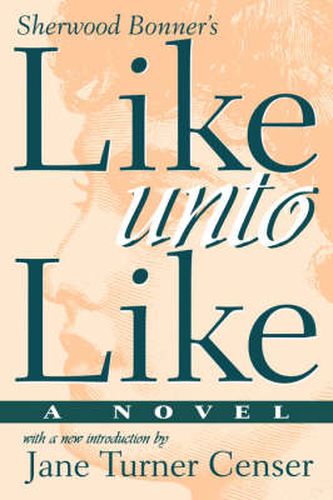Readings Newsletter
Become a Readings Member to make your shopping experience even easier.
Sign in or sign up for free!
You’re not far away from qualifying for FREE standard shipping within Australia
You’ve qualified for FREE standard shipping within Australia
The cart is loading…






A coming-of-age story and commentary on the trials of womanhood in the Reconstruction South
Originally published in 1878 after Henry Wadsworth Longfellow recommended it to Harper and Brothers, Like Unto Like marks the emergence of a feminist critique of southern society a full generation before Ellen Glasgow and Kate Chopin published their well-known works. The novel follows a romance between a free-spirited, intellectual southerner, Blythe Herndon, and a former abolitionist and Union soldier, Roger Ellis. Seeing marriage to an outsider as an escape from the strictures of southern society, Blythe soon realizes that even Roger will expect deference from his wife. She acknowledges her inability, despite a desire to be free from convention, to accept Roger’s egalitarian views on race relations, his notions of free love, and his past affair with a married woman.
In addition to warning female readers of the potential dangers of marriage, Bonner recognizes the importance of race in southern attitudes and breaks new ground in creating a range of African American characters. Jane Turner Censer’s new introduction accords Bonner the long-delayed literary recognition she deserves.
$9.00 standard shipping within Australia
FREE standard shipping within Australia for orders over $100.00
Express & International shipping calculated at checkout
A coming-of-age story and commentary on the trials of womanhood in the Reconstruction South
Originally published in 1878 after Henry Wadsworth Longfellow recommended it to Harper and Brothers, Like Unto Like marks the emergence of a feminist critique of southern society a full generation before Ellen Glasgow and Kate Chopin published their well-known works. The novel follows a romance between a free-spirited, intellectual southerner, Blythe Herndon, and a former abolitionist and Union soldier, Roger Ellis. Seeing marriage to an outsider as an escape from the strictures of southern society, Blythe soon realizes that even Roger will expect deference from his wife. She acknowledges her inability, despite a desire to be free from convention, to accept Roger’s egalitarian views on race relations, his notions of free love, and his past affair with a married woman.
In addition to warning female readers of the potential dangers of marriage, Bonner recognizes the importance of race in southern attitudes and breaks new ground in creating a range of African American characters. Jane Turner Censer’s new introduction accords Bonner the long-delayed literary recognition she deserves.